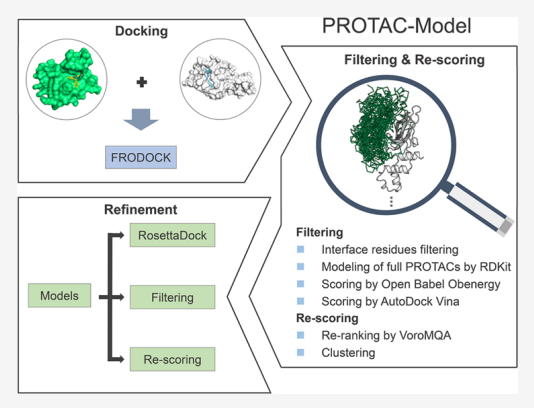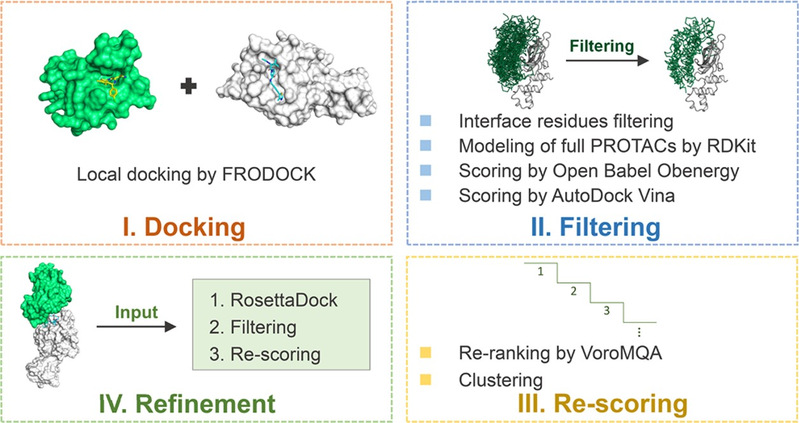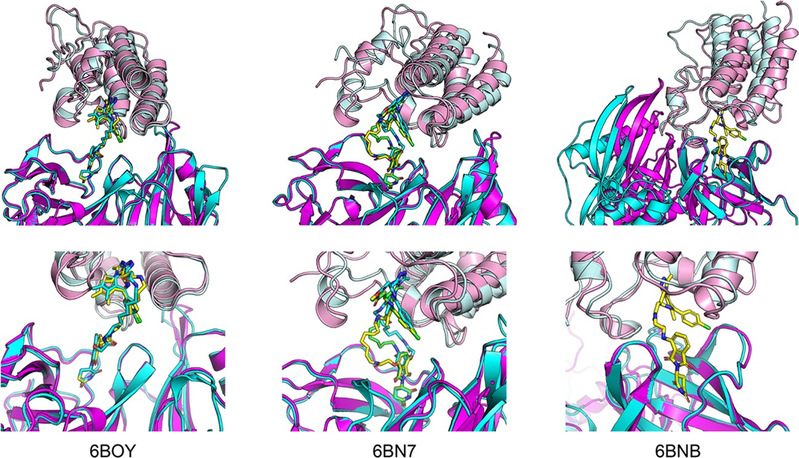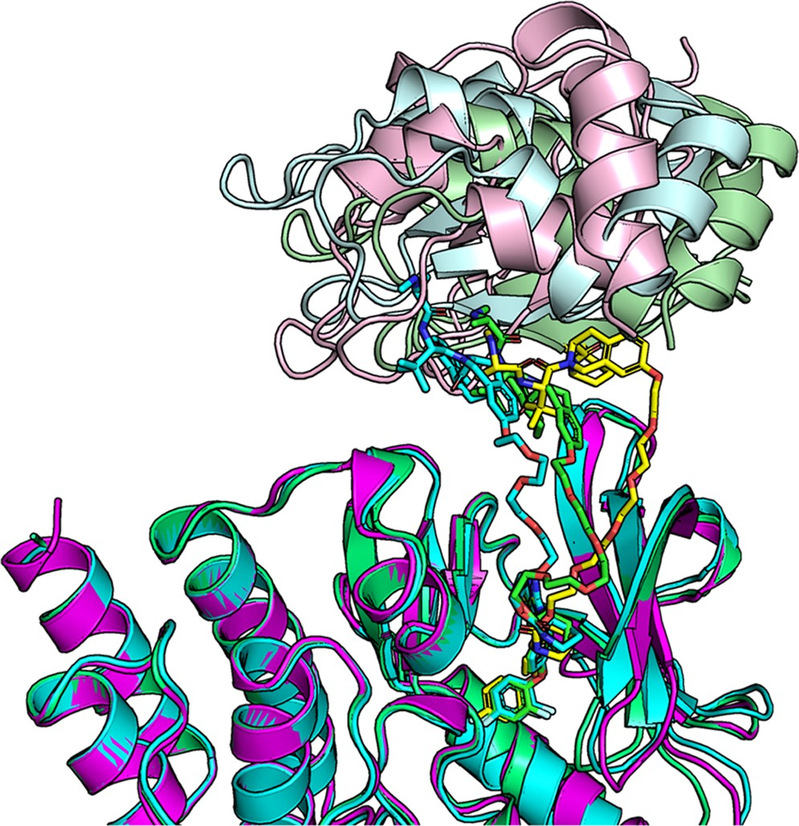Research from Tingjun Hou's lab has been published in Journal of Medicinal Chemistry
2021-11-18 | 药学院英文网
In October 2021, Professor Tingjun Hou and Associate Professor Yu Kang from CPS-ZJU made new progress in the structural prediction of PROTAC ternary complexes, and developed the PROTAC-Model modeling method, which has broad application prospects in the rational design of PROTAC based on structure. Related work Published in the authoritative journal of medicinal chemistry ' Journal of Medicinal Chemistry ' under the title ' Integrative Modeling of PROTAC-Mediated Ternary Complexes'.

Proteolysis-targeting chimeras (PROTACs), which selectively induce targeted protein degradation, represent an emerging drug discovery technology. Although numerous PROTACs have been reported, designing potent PROTACs still remains a great challenge, to some extent, due to insufficient structural data of Target-PROTAC-E3 ternary complexes. In this work, PROTACModel, an integrative computational method by combining the FRODOCK-based protocol and RosettaDock-based refinement, was developed to predict PROTACmediated ternary complex structures and tested on 14 cases. The quality of the models was evaluated using the criteria of the critical assessment of predicted interactions (CAPRI). Using the unbound structures, the FRODOCK-based protocol can generate the ternary complex structures with medium or high quality for 8 cases out of 14. With the refinement by RosettaDock, the cases with medium or high quality increase to 12. Compared with PRosettaC and the method developed by Drummond et al., PROTAC-Model shows better performance. In summary, PROTAC-Model should be useful for the rational design of PROTACs.





Zhejiang University Institute of Intelligent Innovative Drugs & Pharmacy and College of Pharamceutical Sciences Zhejiang University are the first signatory unit of this paper. Ph.D. student Gaoqi Wang from College of Pharamceutical Sciences Zhejiang University is the first authour of this work, under the supervision of Professor Tingjun Hou and Associate Professor Yu Kang.
Student Research
-
13
2021.12
-
26
2021.11
-
18
2021.11
-
17
2021.11
-
21
2021.10
-
21
2021.10
